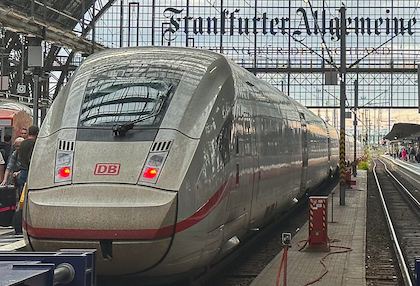Other economics
Airlines – an Economics 1 case study.
A year ago the Commonwealth directed the Australian Competition and Consumer Commission to re-commence domestic airline monitoring.

The airlines’ worst fear
The ACCC is now producing reports every three months. Its most recent report, released this month, covers the period July to September, during which time Rex ceased operating routes between big cities. It could be a case study for first-year economics students. Domestic seat capacity fell by 6.0 percent and revenue per seat rose by 13.3 percent. There is now no longer any route on our domestic network served by other than the two major airline groups.
The ACCC says “it may be some time before a new airline emerges” That’s a neatly vague piece of bureaucratise. Even if a new airline does emerge, it may not survive very long.
Why do governments think of “airline” policies, rather than “transport” policies. Such a broadening in thinking may bring forward the construction of a Brisbane-Sydney-Canberra-Melbourne-Adelaide fast rail service. That would make Qantas and Virgin lift their game.
A practical idea on currency
“How about this: the Government should legislate for the Reserve Bank of Australia to run the credit and debit card system through the retail banks. So instead of the retail banks issuing Mastercards and Visas they would issue an Australian Reserve Bank Card”.
That’s Crispin Hull’s radical credit card idea.
Actually it’s not so radical. As he points out, way back in 1974 we had a simple credit card run through our own banking system, known as Bankcard. No frills, no frequent-flyer points, just a plain vanilla credit card.
But we let the American behemoths, Mastercard and Visa, take over the credit card business.
A similar simple card would be much cheaper for merchants and customers, particularly if the Reserve Bank prohibited “reward points”, an anti-competitive system that in the name of “loyalty” restricts consumer points. In the language of the consumer protection authorities it’s called “third line forcing”.
If the cost to merchants of cashless transactions can be made low enough, businesses might find it convenient to impose a surcharge for use of cash. Cash is expensive to handle, makes shop staff vulnerable to attack by thieves, and is the currency of choice for tax evaders, employers of underpaid workers, and money launderers. If the true cost of cash has to be paid by its users, those 1.5 million Australians who doggedly insist on using cash would soon change their ways.
But for now the government is insisting that essential businesses – groceries, gasoline – accept cash as Steve Wortington of Swinburne University of Technology explains on Radio National’s The Money (About 25 minutes into the latest episode, which is mainly about the German economy). Cash will still be essential in some rural areas, he explains. But it’s expensive for business – becoming relatively more so as it becomes a minor form of payment – and that cost has to be paid for somehow.
This must be a time-limited arrangement. Government don’t insist that we still use fax and telex machines: surely it shouldn’t insist that businesses use an expensive and high-risk form of payment.